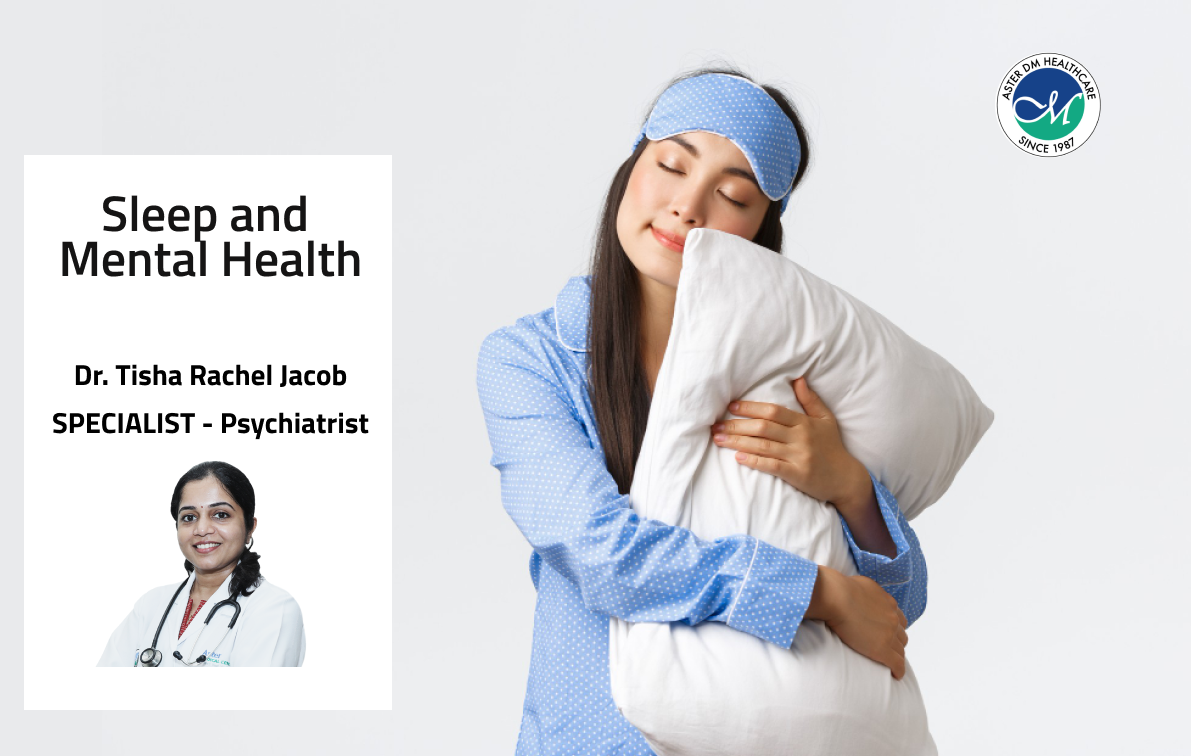Quality sleep is essential for maintaining mental well-being, while Mental health conditions can also profoundly affect sleep patterns. Prioritizing good sleep hygiene, addressing mental health concerns early, and seeking professional help when needed can create a positive feedback loop, improving both sleep quality and emotional well-being. Small, consistent changes in lifestyle and habits can yield significant benefits over time.
How Sleep Impacts Mental Health
1. Emotional Regulation:
a. Sleep helps regulate emotions by allowing the brain to process emotional experiences. The amygdala, a brain region involved in emotional responses, becomes overactive with insufficient sleep, leading to heightened emotional reactivity, irritability, and mood swings.
2. Cognitive Function:
a. Adequate sleep supports cognitive processes like memory consolidation, problem-solving, and decision-making. Poor sleep impairs attention, concentration, and executive functioning, which can exacerbate symptoms of mental health disorders.
3. Mental Health Disorders:
a. Depression: Poor sleep is both a symptom and a contributor to depression. Insomnia increases the risk of developing depression, while restorative sleep can improve mood and resilience.
b. Anxiety: Sleep deprivation heightens anxiety by increasing activity in the brain’s fear centers.
c. Bipolar Disorder: Sleep disturbances can trigger manic or depressive episodes. Regular sleep schedules are a cornerstone of managing bipolar disorder.
d. Schizophrenia: Disrupted sleep patterns are common in schizophrenia and may worsen symptoms like hallucinations and cognitive deficits.
4. Stress Response:
a. Sleep regulates the hypothalamic-pituitary-adrenal (HPA) axis, which controls stress responses. Poor sleep elevates cortisol levels, amplifying stress and potentially leading to burnout or anxiety disorders.
How Mental Health Impacts Sleep
1. Anxiety and Stress: Excessive worrying or racing thoughts can make it difficult to fall asleep or stay asleep, leading to insomnia. Chronic stress also disrupts the body’s circadian rhythm, further impairing sleep quality.
2. Depression: Depression can cause insomnia (difficulty falling/staying asleep) or hypersomnia (excessive sleeping). About 75% of people with depression experience sleep disturbances.
3. Post-Traumatic Stress Disorder (PTSD): Nightmares and hyperarousal associated with PTSD often lead to fragmented sleep or fear of sleeping, worsening trauma-related symptoms.
4. Substance Use and Medications: Mental health conditions often co-occur with substance use (e.g., alcohol, caffeine, or drugs), which disrupts sleep architecture. Some psychiatric medications, like certain antidepressants, may also cause insomnia or drowsiness.
Practical Strategies to Improve Sleep and Mental Health
1. Sleep Hygiene:
a. Maintain a consistent sleep schedule, even on weekends.
b. Create a relaxing bedtime routine (e.g., reading, meditation, or a warm bath).
c. Limit screen time 1–2 hours before bed to reduce blue light exposure, which suppresses melatonin production.
d. Keep the bedroom cool, dark, and quiet.
2. Cognitive Behavioral Therapy for Insomnia (CBT-I):
CBT-I is a highly effective, evidence-based treatment for insomnia that addresses negative thought patterns and behaviors around sleep.
3. Exercise:
a. Regular physical activity (e.g., 30 minutes of moderate exercise most days) improves sleep quality and reduces symptoms of anxiety and depression. Avoid intense exercise close to bedtime.
4. Diet and Substances:
a. Limit caffeine and alcohol, especially in the afternoon and evening, as they disrupt sleep.
b. Eat a balanced diet rich in nutrients like magnesium and omega-3 fatty acids, which support sleep and mental health.
5. Mindfulness and Stress Management:
a. Practices like meditation, deep breathing, or yoga can reduce stress and improve sleep quality.
b. Journaling before bed can help offload anxious thoughts.
6. Professional Help:
Consult a healthcare provider if sleep or mental health issues persist. Therapy, medication, or sleep studies may be recommended.
When to Seek Help
· Persistent sleep problems (e.g., insomnia, excessive sleepiness, or nightmares) lasting more than a few weeks.
· Mental health symptoms (e.g., sadness, anxiety, or irritability) that interfere with daily life.
